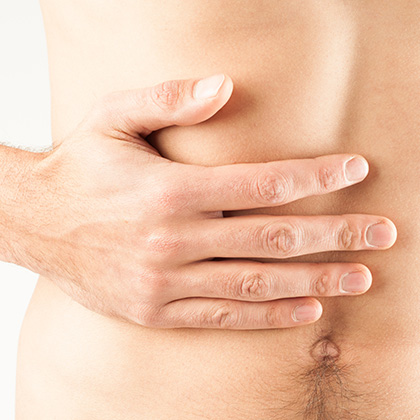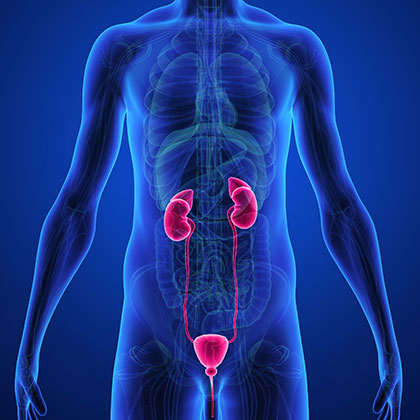
Nowadays, probiotics or live bacteria, also known as ‘good’ or ‘friendly’ bacteria, have become a household term, with many people aware of their benefits. You also probably know you can take supplements and eat foods rich in these bacteria to top-up the colonies of microorganisms already living in your digestive tract. But what if there was another way to help the growth and flourishing of the bacteria in your gut?
Enter prebiotics, which are available in foods or supplement form. In a nutshell, what prebiotics do is ‘feed’ your gut microbiota, the collective bacteria and other beneficial organisms living in your intestines (most notably in your large colon). Having this source of energy helps your gut microbiota to thrive – in fact, some experts refer to prebiotics as ‘microbiome fertilisers’ (i). While probiotics and prebiotics have similar-sounding names, they play different roles, but ultimately aim to support a happy, healthy digestive system.
What are probiotics?
To better understand prebiotics, it’s useful to know a bit about what probiotics do.
Essentially, there are thought to be more than a trillion of these live bacteria in your gut, most of which are either beneficial for your health or entirely harmless.
When this balance is disturbed, however, and the small minority of less healthy or potentially harmful microorganisms in your gut grows in number, it can trigger health conditions including digestive issues such as the symptoms of irritable bowel syndrome (IBS), inflammatory bowel disease and even problems with your heart, kidneys or brain. There’s even a word to describe when the microbiome becomes disrupted or unbalanced: dysbiosis.
For more information about probiotics, check out our article What are the benefits of live bacteria.
What are prebiotics?
So, prebiotics can help make our internal probiotics stronger, healthier and more abundant. But what exactly are they?
Compared to probiotics, which have been studied by scientists for more than a century, prebiotics are a relatively new discovery in the field of nutritional science. In fact, prebiotics were first identified in 1995 by Professor Glenn Gibson of Reading University in a paper he co-wrote with Professor Marcel Roberfroid of the Université Catholique de Louvain in Belgium (ii).
Prebiotics vs Probiotics
While probiotics are live bacteria, prebiotics are components of carbohydrate foods such as fibres and sugars, as well as some other substances that aren’t technically carbohydrates but are classed as having prebiotic properties. All of these substances are non-digestible compounds, which means your body struggles to digest them.
Being non-digestible compounds also means prebiotics are resistant to stomach acid, so they reach the colon – where they’re needed – intact. Once in the colon prebiotics are fermented and broken down into fuel by your gut bacteria, which helps your gut bacteria grow and work more effectively.
This process also produces other compounds, or by-products such as short-chain fatty acids, which too have a number of beneficial effects including stimulating your immune system (iii).
What foods contain prebiotics?
There are several different groups and types of prebiotics found in a range of foods, including:
Fructo-oligosaccharides (FOS)
Types of FOS include soluble fibres such as inulin, fructans, oligofructose and oligofructans. There are small amounts found in foods including chicory, garlic, onions, asparagus, bananas, wheat, barley, leeks, soya beans, Jerusalem artichokes, agave and dandelion greens. FOS is also available in supplements including powders that can be sprinkled on foods and even used as a sweetener thanks to its naturally sweet taste.
Galacto-oligosaccharides (GOS)
Types include lactose, raffinose, stachyose, arabinogalactan and guar gum. Foods containing GOS include beans, lentils, chickpeas, peas, some root vegetables and dairy foods.
Xylo oligosaccharides (XOS)
There are two types of XOS, namely xylose and xylan. These are found in foods such as mushrooms, seaweed and microalgae.
Pectin oligosaccharides (POS)
Pectin and citrus pectin are types of POS, with food sources including oranges, lemons, limes, grapefruit, apples and apple cider vinegar.
Mannan oligosaccharides (MOS)
The main source of MOS is the konjac plant, which is used to produce konjac powder as well as foods such as konjac rice and konjac noodles.
Plant polyphenols
Phenolic acids, resveratrol, tannins and flavonoids are types of plant polyphenols with prebiotic properties. You can find them in many fruits and vegetables as well as cereals, herbs, spices, tea, coffee, wine and cacao/cocoa powder (dark chocolate is a source too).
Fermentable fibres
Types of fermentable fibres with prebiotic properties include resistant starches, cellulose and beta-glucans. These are found in a range of foods including broccoli, cabbage, Brussel sprouts, leafy green vegetables, sweet potatoes, yams, nuts, seeds, beetroot, pears, apples, unripe bananas and oat bran, as well as rice and potatoes that have been cooked and left to cool.
Types of prebiotics
According to researchers, FOS and GOS are the two important groups of prebiotics with beneficial effects on human health (iv). Since these prebiotics are found in low qualities in natural foods, it can be challenging to consume enough of them through diet alone. In such cases, taking a supplement can be easier and a more convenient option.
If you already take a live bacteria supplement, taking a prebiotic formula at the same time may make your probiotic even more effective. Similarly, if you’re thinking about taking a prebiotic supplement, consider a probiotic too if you want to make the most of their combined health effects.
Prebiotic side effects
It’s important to note that some people may experience one or two mild temporary side effects when they start taking prebiotics/probiotics (or when adding prebiotic/probiotic foods to their diet), including excess wind, bloating and other minor digestive upsets. However, as your digestive system gets used to the new regime, the side effects will usually disappear.
What are synbiotics?
Some nutrition practitioners recommend a combination of probiotic and prebiotic foods in the same meal, as an ideal way of boosting your gut bacteria – this combination is called synbiotic (you could say it’s the food equivalent of taking a probiotic and prebiotic supplement at the same time).
Some examples of synbiotic food combinations include miso soup containing spring onions and tofu, Greek salad that includes feta cheese and raw onions, and hummus on sourdough toast.
Benefits of prebiotics: what does research say?
While there is a body of clinical studies that have investigated the benefits of live bacteria, studies looking at prebiotics and how they influence human health are thinner on the ground – though researchers have stepped up their interest in studying prebiotics in recent years.
Since prebiotics help live bacteria do their job more effectively, it could be argued that it’s highly likely they’re important for health too. Some researchers have, however, uncovered specific potential health benefits linked with prebiotics.
Benefits of prebiotics
Maintaining a healthy gut microbiome
A healthy gut bacteria balance usually consists of around 90 percent beneficial microorganisms and 10 per cent less beneficial and potentially harmful microorganisms. But many things can upset this balance including stress, health problems, ageing, travel, diet changes and taking antibiotics. However, scientists have discovered some prebiotics may support beneficial bacteria in the gut such as lactobacillus and bifidobacterium, and also that they may help reduce or impede the action of some types of potentially harmful bacteria (v).
Constipation relief
NHS experts claim one in seven adults and one in three children in the UK has constipation at any one time (vi). However, a review of 21 randomised controlled trials concludes prebiotics are effective treatments for chronic constipation – though the researchers say they’re not clear about which types of prebiotics work best (vii).
Lower cholesterol
A type of prebiotics – namely inulin – has been found to have potential cholesterol-lowering effects in one small-scale study (viii), where researchers found participants with high cholesterol had their total cholesterol levels reduced significantly after taking a daily inulin supplement for just four weeks.
Improved brain function and mental health
Researchers have discovered that the gut microbiota may communicate with the central nervous system via a mechanism called the gut-brain axis, and that dysbiosis and inflammation of the gut may be linked to mental illnesses such as anxiety and depression (ix). Scientists elsewhere suggest there’s evidence that prebiotics may improve brain function and behaviour, though they say more research on the subject is needed (x).
Allergy risk reduction
Researchers writing in the medical journal Current Developments in Nutrition suggest microbial diversity in the gut plays an influential role in the development of many inflammatory diseases and conditions, including allergic diseases (xi). They also claim taking FOS/GOS supplements has been shown to have allergy-protective effects – specifically against the development of eczema and rhinoconjunctivitis.
Healthier immunity
Some studies suggest prebiotics may support a healthy immune response, both by supporting a balanced gut microbiota and by stimulating molecules that are important for immune function (xii). Exactly how prebiotics may influence the immune system is unclear, but it may have something to do with the by-products prebiotic fermentation creates in the gut (short-chain fatty acids, for example)
Irritable bowel syndrome and Crohn’s disease
Study results investigating the benefits of taking prebiotics in people with IBS and Crohn’s disease have to date been mixed. But one published trial suggests taking FOS supplements for six weeks may improve IBS symptoms (xiii), while another has discovered taking FOS supplements for three weeks might improve Crohn’s disease (xiv).
However, scientists believe there’s a chance high intakes of prebiotics may aggravate the symptoms of IBS in some people (xv), as the fermentation of prebiotics in the gut could cause digestive upsets such as gas, bloating, diarrhoea and constipation. If you find foods that contain FODMAPs irritate your gut and trigger IBS symptoms, it may be a good idea to steer clear of prebiotics (read more about FODMAPs in our article What is a FODMAP diet?)
Want to know more?
There’s lots more information about a range of stomach, bowel and digestive health conditions in the digestive health section of our pharmacy health library.
References:
-
Appanna VD. , Dysbiosis, Probiotics, and Prebiotics: In Diseases and Health. Human Microbes – The Power Within. 2018 Feb 6; :81-122. Available online: https://www.ncbi.nlm.nih.gov/pmc/articles/PMC7121371/
-
Gibson GR, . Dietary modulation of the human colonic microbiota: introducing the concept of prebiotics. J Nutr. 1995 Jun;125(6):1401-12. Available online: https://academic.oup.com/jn/article/125/6/1401/4730532
-
Guarino MPL et al., Mechanisms of Action of Prebiotics and Their Effects on Gastro-Intestinal Disorders in Adults. Nutrients 2020 Apr;12(4):1037. Available online: https://www.ncbi.nlm.nih.gov/pmc/articles/PMC7231265/
-
Davani-Davari D, Negahdaripour M, Karimzadeh I, Seifan M, Mohkam M, Masoumi SJ, Zhang D, Abbasi MM, Prebiotics: Definition, Types, Sources, Mechanisms, and Clinical Applications. Foods 2019 Mar;8(3):92. Available online: https://www.ncbi.nlm.nih.gov/pmc/articles/PMC6463098/
-
Gibson GR, McCartney AL, Rastall RA., Prebiotics and resistance to gastrointestinal infections. Br J Nutr. 2005 Apr;93 Suppl 1:S31-4. Available online: https://www.cambridge.org/core/journals/british-journal-of-nutrition/article/prebiotics-and-resistance-to-gastrointestinal-infections/CE7BC182188DD53BC6EEC551460CA57F
-
Available online: https://www.nhsinform.scot/illnesses-and-conditions/stomach-liver-and-gastrointestinal-tract/constipation
-
Naseer M.et al., Therapeutic Effects of Prebiotics on Constipation: A Schematic Review. Curr Clin Pharmacol. 2020;15(3):207-215. Available online: https://www.eurekaselect.com/article/104446
-
Balcazar-Munoz B, Martinez-Abundis E, Gonzalez-Ortiz M. Effect of oral inulin administration on lipid profile and insulin sensitivity in subjects with obesity and dyslipidemia [article in Spanish]. Rev Med Chil. 2003 Jun;131(6):597-604. Available online: https://pubmed.ncbi.nlm.nih.gov/12942586/
-
Clapp M et al., Gut microbiota’s effect on mental health: The gut-brain axis. Clin Pract. 2017 Sep 15; 7(4): 987. Available online: https://www.ncbi.nlm.nih.gov/pmc/articles/PMC5641835/
-
Serra MC et al., Prebiotic Intake in Older Adults: Effects on Brain Function and Behavior. Curr Nutr Rep. June 2019;8(19): 66-73. Available online: https://link.springer.com/article/10.1007/s13668-019-0265-2
-
Carlson JL et al., Health Effects and Sources of Prebiotic Dietary Fiber. Curr Dev Nutr 2018 Mar;2(3):nzy005. Available online: https://www.ncbi.nlm.nih.gov/pmc/articles/PMC6041804/
-
Shokryazdan P, et al., Effects of prebiotics on immune system and cytokine expression. Med Microbiol Immunol 2017 Feb;206(1):1-9. Available online: https://link.springer.com/article/10.1007/s00430-016-0481-y
-
Paineau D, et al., The effects of regular consumption of short-chain fructo-oligosaccharides on digestive comfort of subjects with minor functional bowel disorders. Br J Nutr 2008 Feb;99(2):311-8. Available online: https://www.cambridge.org/core/journals/british-journal-of-nutrition/article/effects-of-regular-consumption-of-shortchain-fructooligosaccharides-on-digestive-comfort-of-subjects-with-minor-functional-bowel-disorders/2238E6775A3F213DAA7FED1080D4D4B7
-
Lindsay JO, et al., Clinical, microbiological, and immunological effects of fructo?oligosaccharide in patients with Crohn's disease. Gut 2006 Mar; 55(3):348-355. Available online: https://www.ncbi.nlm.nih.gov/pmc/articles/PMC1856087/
-
Simon E et al., Probiotics, Prebiotics, and Synbiotics: Implications and Beneficial Effects against Irritable Bowel Syndrome. Nutrients 2021 Jun; 13(6):2112. Available online: https://www.ncbi.nlm.nih.gov/pmc/articles/PMC8233736/
You Might Also Like
Disclaimer: The information presented by Nature's Best is for informational purposes only. It is based on scientific studies (human, animal, or in vitro), clinical experience, or traditional usage as cited in each article. The results reported may not necessarily occur in all individuals. Self-treatment is not recommended for life-threatening conditions that require medical treatment under a doctor's care. For many of the conditions discussed, treatment with prescription or over the counter medication is also available. Consult your doctor, practitioner, and/or pharmacist for any health problem and before using any supplements or before making any changes in prescribed medications.

Christine
Christine Morgan has been a freelance health and wellbeing journalist for almost 20 years, having written for numerous publications including the Daily Mirror, S Magazine, Top Sante, Healthy, Woman & Home, Zest, Allergy, Healthy Times and Pregnancy & Birth; she has also edited several titles such as Women’ Health, Shine’s Real Health & Beauty and All About Health.
View More



